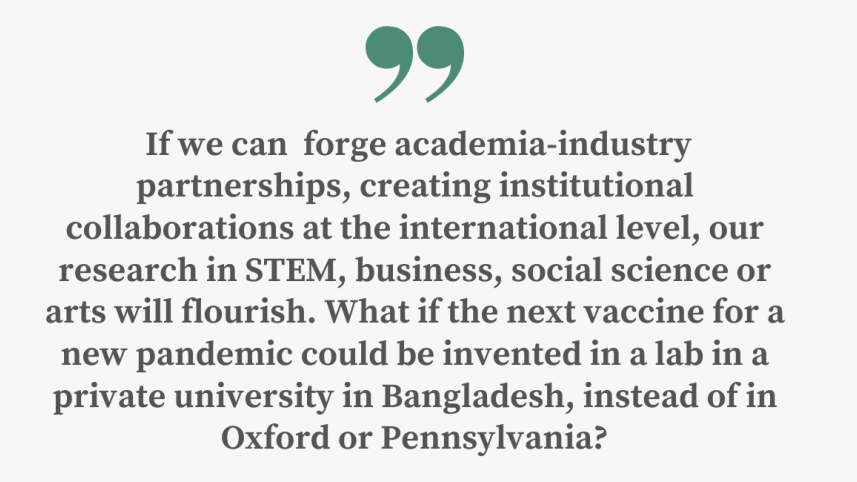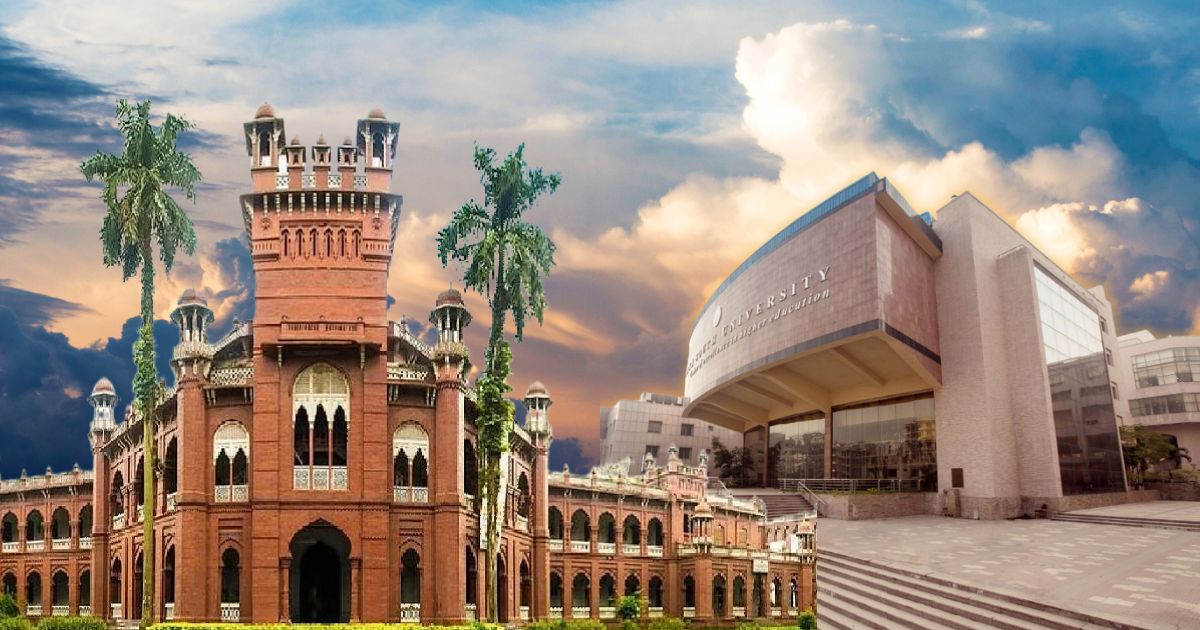Why not a PhD from a Bangladeshi private university?

Bangladesh is probably the only country in the world where a university is evaluated based on its public and private status rather than its teaching and research output or international outlook. Public universities are more privileged and empowered than the private ones in Bangladesh. Many public universities, as such, qualify to grant PhDs, but none of the private universities are able to offer them.
For example, despite being recognised as the top university in Bangladesh in the recent The Times Higher Education (THE) World University Rankings 2023, North South University (NSU) cannot provide PhD degrees since it is a private institution. Statistically speaking, among all the universities in Bangladesh, NSU has the highest proportion of PhD holders, where every faculty has at least one foreign degree from an internationally acclaimed university. It also has the most per capita research output among all the universities.
Another example is BRAC University, whose students won the World Debating Championship and NASA Space Apps Challenge, competing with universities like Harvard, Yale and Columbia. BRAC University also ranked in the global top 50 for SDG 1 in the Times Higher Education (THE) University Impact Rankings 2022.
Top private universities such as NSU and BRAC hire international scholars who add value to academic, research and administrative activities, and contribute to adding to global rankings. Apparently, these universities have the physical and intellectual infrastructure and resources to grant PhDs. And for financial and personal reasons, many students might be unable or disinterested in going abroad or opting for a public university to earn their PhD, and might want to complete them at top universities in Bangladesh instead.
Such issues are worse for female students. Their family, socioeconomic and cultural constraints might bar them from studying abroad, especially since a PhD is a long-term commitment. If PhD degree-granting status were given to reputed private universities, besides Bangladeshi students, international students could also arrive for higher studies, providing our universities with a global outlook and better rankings.

Unfortunately, however, there is a gross generalisation that only those who do not get a chance to go to public universities are admitted to private universities. While this is true to some extent, a significant number of students at certain private universities come from English medium backgrounds and choose to opt out of going to public universities. Also, because of the generous financial aid and merit scholarships, many Bangla medium or mainstream meritorious students, who are capable of getting chances at public universities, join private universities to complete their studies on time. We tend to forget that it is not only the financial affordability that takes a student to private university; it is the choice of many students who cannot pursue their desired subjects in the public university system.
There is a stereotype in Bangladesh when it comes to private and public universities, where the public university is associated with "meritocracy", "successful career" or "wannabe BCS cadre", disregarding the volatile academic atmosphere marred with student and teachers' politics, ragging culture, session jam and factionalism. Instead of creating a parochial binary between the public and private, we need to evaluate a university, private or public, in terms of its quality. Think about Ivy League universities in the US. Harvard, Yale and Princeton, for example, are all private universities; interestingly, there is hardly anyone who criticises the quality of those elite universities.
Leading private universities must invest money to finance their students if they are to be allowed to grant PhDs. In developed countries, different agencies and industries fund PhD research projects besides the universities. Unfortunately, big companies in Bangladesh hardly invest in research and development for their businesses, let alone academic research. If we can buck the trend and forge academia-industry partnerships, creating institutional collaborations at the international level, then our research in STEM, business, social science or arts will flourish. What if the next vaccine for a new pandemic could be invented in a lab in a private university in Bangladesh, instead of in Oxford or Pennsylvania?
Out of a total of 162 public and private universities in Bangladesh, about half of the public universities currently offer PhD degrees. We are not arguing that all private universities should be given PhD-granting status, but at least a few first-tier private universities, such as NSU, BRAC, East West, IUB, UIU, AIUB, Daffodil and ULAB, should be permitted to admit PhD students to take the universities to the next level in international rankings and create an impact through research and innovation.
Not allowing several private universities to perform up to their potential lets education down in Bangladesh. That is an expensive option. Why should we afford it, when we have better alternatives?
Harisur Rahman is an associate professor at the Department of Political Science and Sociology in North South University, and Sakir Mohammad is a Research Associate at the South Asian Institute of Policy and Governance (SIPG) in North South University.



 For all latest news, follow The Daily Star's Google News channel.
For all latest news, follow The Daily Star's Google News channel. 

Comments